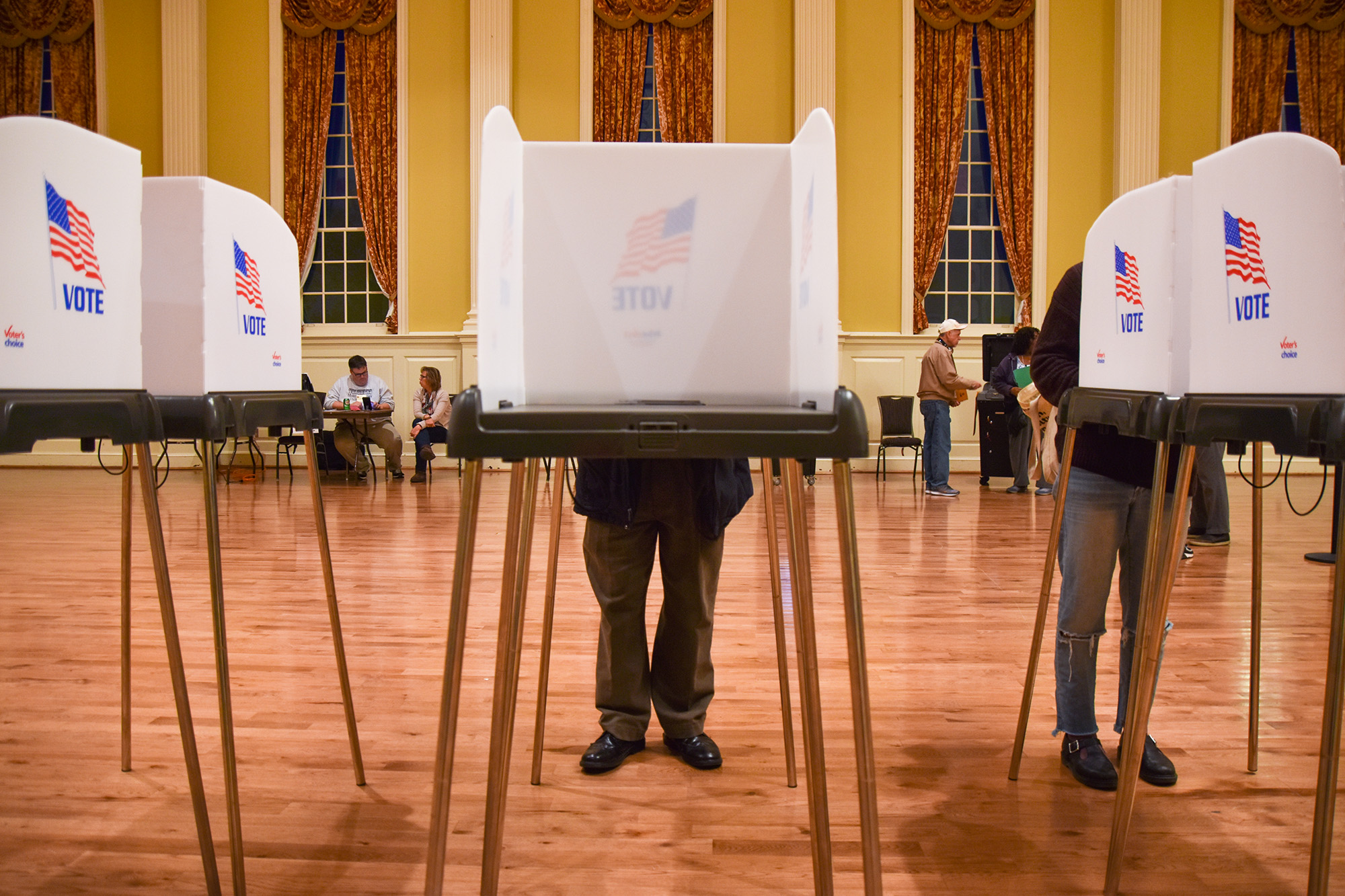Views expressed in opinion columns are the author’s own.
While American political discourse has become increasingly polarized in recent years, U.S. voter turnout still substantially trails behind most developed countries. Only 55.7 percent of the voting-age population cast a ballot in 2016, landing the U.S. in 26th place. Quite literally, our elected officials are selected with the consent of barely above half of our population.
Though we now accept low voter turnout as normal, there’s no reason this has to be the case. In order to make sure our representative bodies are, in fact, representative of our nation’s populace, the U.S. could enact a policy of compulsory voting and dramatically improve the electoral process.
Studies of non-voters indicate that, compared to the average voter, the average non-voter is younger, less affluent, less educated and more likely to be a minority. Despite the prevailing idea that non-voters are somehow “privileged” for not voting, the data say otherwise. However, the price of not voting can be detrimental to the same people who choose not to cast a ballot.
Sweeping, progressive policies are widely popular in the electorate: 54 percent of Americans (including 56 percent of independents and 19 percent of Republicans) support Medicare for All, 60 percent (65 percent of independents and 31 percent of Republicans) support a $15 an hour minimum wage, and 57 percent (61 percent of independents and 28 percent of Republicans) support tuition-free public colleges. This popular sentiment exists across the ideological spectrum, yet the vast majority of elected politicians have bucked the preferences of the public in favor of austerity politics and corporate welfare.
There are many reasons that can explain why politicians avoid enacting these basic social democratic policies. The most obvious explanation is politicians choose not to support these bold proposals in the name of moderation and bipartisanship. Another, and perhaps more salient reason, is that many politicians don’t feel the need to appeal to individuals who are less likely to actually vote.
Many people choose not to vote because they worry their voices will be ignored. But if every citizen is required to vote, politicians would be forced to tailor their policies toward the preferences of the average American.
Additionally, countless people have been disenfranchised through draconian voter suppression measures. Millions of eligible voters are forced to jump through hoops in order to exercise their right to vote. Some states, in fact, routinely purge their voter rolls of hundreds of thousands of registered, eligible voters. What better way to combat voter suppression than to require every voting-eligible citizen to cast a ballot?
Compulsory voting would be a major shift toward true democracy, but it would be politically difficult to implement. Libertarian-minded individuals would likely consider any mandatory voting measure to be a case of government overreach. Republicans, some say, actually have a vested interest in making sure fewer people vote. Even if the Democrats controlled the White House, occupied a majority in Congress and pushed for compulsory voting legislation, there is no guarantee the (likely) conservative-majority Supreme Court would allow for the law’s implementation.
Despite the unlikeliness of its implementation, the idea of requiring citizens to vote is one worth thinking about and fighting for. Our institutions remain remarkably undemocratic — but compulsory voting could offer our country a chance to be more representative, just and equitable.
Josh Binderman is a senior government and politics major. He can be reached at jmbinderman@gmail.com.



